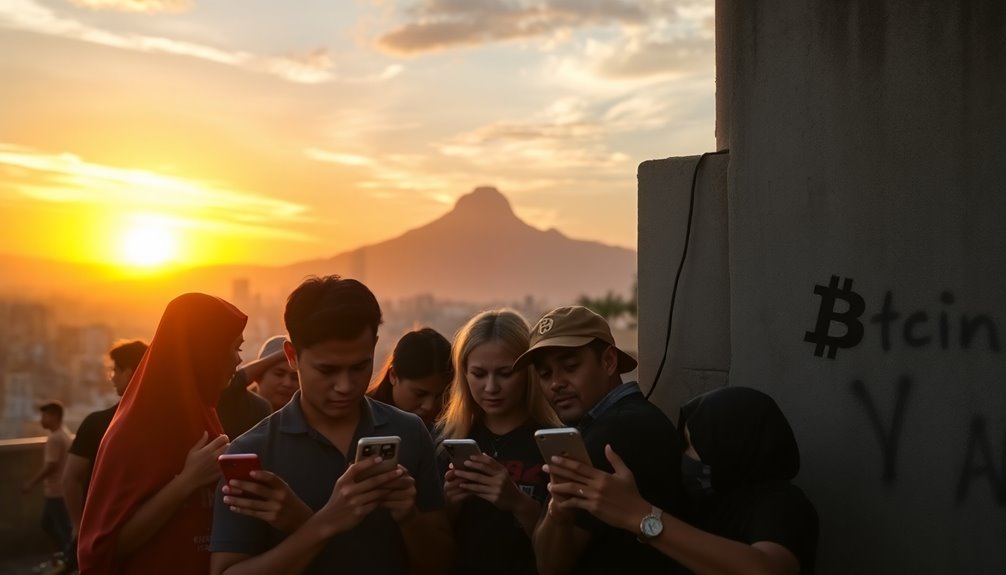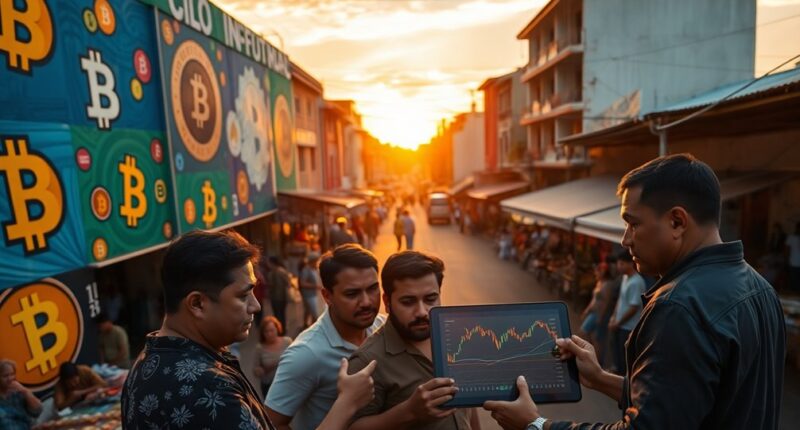El Salvador's Bitcoin law has sparked significant debate, and as an investor, you need to understand the implications. While the government aimed to enhance remittance flows, mounting pressure from institutions like the IMF raises concerns about the nation's economic stability. With the unpredictable nature of Bitcoin's value, it's crucial to consider the potential risks before diving in. So, what does this mean for your investments in El Salvador?

As El Salvador boldly embraces Bitcoin as legal tender, investors are left to navigate a landscape filled with both promise and uncertainty. Since the law was passed by the Legislative Assembly on June 9, 2021, Bitcoin has been positioned alongside the US dollar, with its legal tender status taking effect on September 7, 2021. The Salvadoran government launched the Chivo wallet to facilitate transactions, leading to over 3 million downloads within a month. However, while the initial response seems enthusiastic, the reality is more complex.
El Salvador's bold Bitcoin experiment promises innovation but presents significant risks for investors navigating this complex landscape.
One of the main goals behind adopting Bitcoin was to enhance remittance efficiency, an essential part of El Salvador's economy. By reducing remittance costs, the government hoped to provide financial relief to many families. Yet, Bitcoin's notorious volatility poses significant risks, alarming international financial institutions like the IMF. Their concerns about economic stability resonate with many investors, especially as the US dollar continues to dominate the financial landscape in the country.
Despite the government's commitment to Bitcoin, only a small fraction of Salvadorans actively use it for transactions. The recent reforms have made Bitcoin acceptance voluntary, which could further hinder its adoption. You should be aware of how these regulatory changes might impact your investments. The government's ongoing Bitcoin acquisitions for national reserves indicate a commitment, but the fluctuating market could still jeopardize your returns.
You need to consider the risks tied to the legal status of Bitcoin and the market's inherent volatility. While the Chivo wallet has gained traction, initial technical challenges may raise questions about its reliability. Furthermore, businesses are no longer mandated to accept Bitcoin, which could limit its use and acceptance in everyday transactions. This shift reflects a cautious approach amid increasing international pressure, including concerns from the IMF about fiscal stability.
As you look at El Salvador's Bitcoin experiment, keep an eye on potential regulatory changes that might emerge in response to economic conditions. The government's focus on securing IMF loans demonstrates a balancing act between innovation and risk management.
With ongoing scrutiny from global financial institutions, your investment strategy should account for both the opportunities and pitfalls in this evolving landscape. Ultimately, while the idea of Bitcoin as legal tender is groundbreaking, the practical implications require careful consideration.









